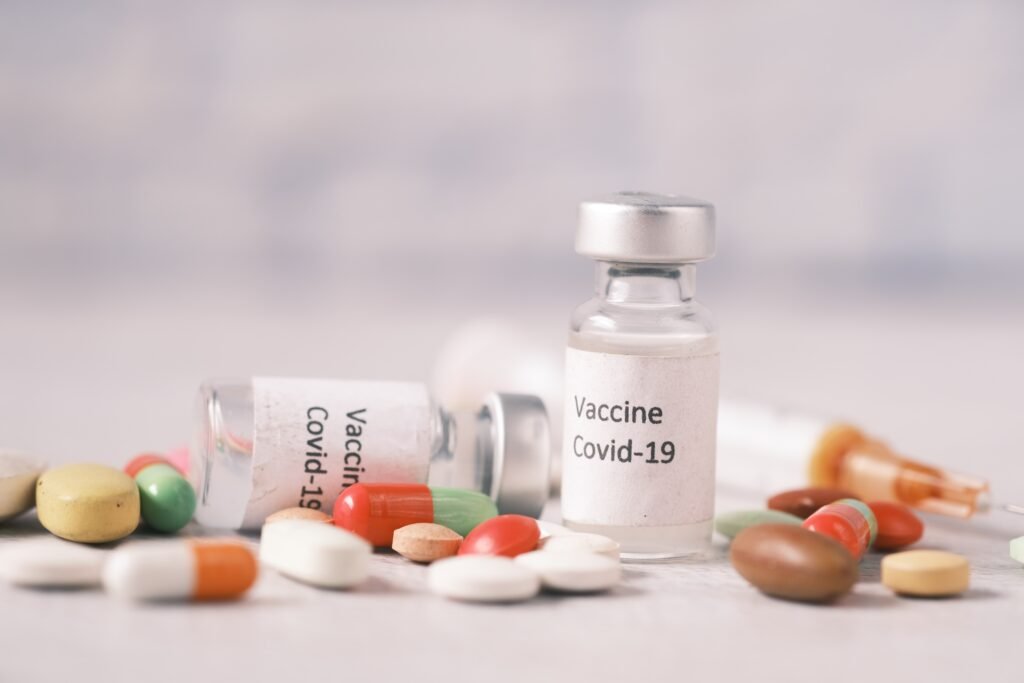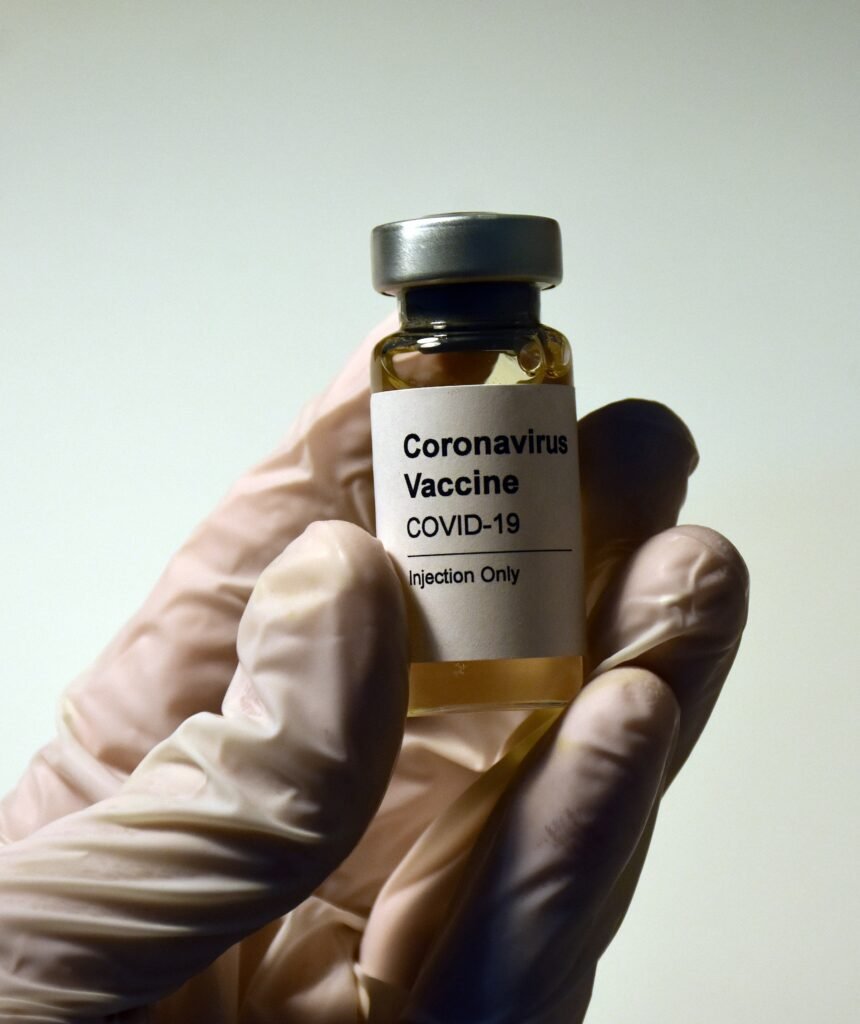Imagine the intense pressure and immense responsibility that comes with being a police officer. Every day, these dedicated men and women face challenging situations that require quick thinking and calmness under extreme stress. However, in the midst of such demanding circumstances, can police officers take anxiety medication to help them cope? This article explores the topic of whether or not anxiety medication is permissible for those in law enforcement, shedding light on the potential implications and considerations that need to be taken into account.
Overview
Understanding anxiety medication
When it comes to anxiety medication, it is important to have a clear understanding of what it entails. Anxiety medication refers to the drugs used to treat anxiety disorders, which are mental health conditions characterized by excessive worrying, fear, and uneasiness. These medications are prescribed by healthcare professionals to help alleviate the symptoms associated with anxiety.
The role of police officers
Police officers play a crucial role in society, ensuring public safety and maintaining law and order. However, the nature of their work can be highly demanding and stressful, which may potentially lead to anxiety or other mental health challenges. It is essential to explore the implications of anxiety medication use for police officers, considering the unique requirements of their profession.
Policies and Regulations
Departmental policies on medication use
Police departments often have specific policies and guidelines regarding medication use by their officers. It is crucial to understand these policies to ensure compliance and to protect the well-being of officers. These policies may address issues such as disclosure, monitoring of side effects, and potential restrictions on certain medications.
Reviewing specific regulations
Apart from departmental policies, it is important to review any relevant regulations that govern the use of anxiety medication by police officers. These regulations may vary depending on the jurisdiction, but understanding them is vital to ensure compliance and avoid any legal complications.
Implications for police officers
Understanding and complying with policies and regulations relating to anxiety medication use are essential for police officers. Violations or non-compliance may carry serious consequences, affecting an officer’s professional reputation and potentially leading to disciplinary actions. Therefore, it is crucial for officers to be aware of the implications and requirements associated with anxiety medication use within their profession.

Effects of Anxiety Medication
Types of anxiety medication
There are various types of anxiety medication available, including selective serotonin reuptake inhibitors (SSRIs), benzodiazepines, and beta blockers. Each type of medication works differently and may be prescribed based on an individual’s specific symptoms and medical history. It is important for officers to understand the different options available to them and consult their healthcare professionals to determine the most suitable medication.
Possible side effects
Like any medication, anxiety medication may have potential side effects. These can vary depending on the specific medication and the individual taking it. Common side effects may include drowsiness, dizziness, decreased alertness, and difficulty concentrating. It is essential for police officers to be aware of these side effects, as they may impact job performance and safety.
Impact on job performance
Anxiety medication can have an impact on various aspects of job performance for police officers. As mentioned earlier, side effects such as drowsiness and decreased alertness can affect their ability to remain focused and respond quickly to situations. It is crucial for officers to assess the potential impact of their medication on their job performance and adjust their duties or schedules accordingly, if necessary.
Considerations for police work
The nature of police work often involves high-stress situations and the need to make split-second decisions. It is important for police officers to consider how anxiety medication may impact their ability to handle these situations effectively. While medication can alleviate anxiety symptoms, finding the right balance to maintain optimal performance is crucial. Open communication with healthcare professionals and supervisors is essential to ensure that officers can carry out their duties safely and effectively.
Seeking Medical Advice
Consulting healthcare professionals
Before starting or adjusting any anxiety medication regimen, it is important for police officers to consult healthcare professionals who specialize in mental health. These professionals can provide the necessary guidance and expertise to determine the most suitable medication and dosage for each individual officer. They can also monitor any potential side effects and make necessary adjustments to ensure the officer’s well-being.
Understanding personal conditions
Every individual’s experience with anxiety is unique, and it is important for police officers to have a comprehensive understanding of their own personal condition. This includes recognizing triggers, understanding the severity of symptoms, and being aware of any underlying mental health conditions. This self-awareness can facilitate open and honest discussions with healthcare professionals and assist in finding the most appropriate treatment options.
Can Police Officers Take Anxiety Medication: Importance of disclosure
Disclosing the use of anxiety medication to supervisors and colleagues is crucial for the well-being of police officers. Open and honest communication ensures that others are aware of potential side effects or changes in behavior that may arise from medication use. It also helps create a supportive work environment where officers can receive understanding and assistance if necessary. Confidentiality should be maintained regarding the specific details of an officer’s condition, but disclosure about the use of medication can contribute to a safer and more supportive workplace.
Balancing health with professional responsibilities
The decision to take anxiety medication is one that requires careful consideration of the potential benefits and drawbacks. Police officers must find a balance between their mental health needs and their professional responsibilities. It is important to prioritize self-care and seek the necessary medical advice to ensure overall well-being while still fulfilling their duties effectively.

Managing Anxiety in the Workplace
Alternative coping strategies
While anxiety medication can be beneficial, it is essential to explore and incorporate alternative coping strategies into one’s routine. These strategies can include regular exercise, stress reduction techniques (such as deep breathing or mindfulness exercises), maintaining a healthy diet, and engaging in activities that bring joy and relaxation. Police officers can explore different coping mechanisms to find what works best for them and helps manage their anxiety symptoms effectively.
Importance of self-care
Self-care is crucial for the overall well-being of police officers, particularly when it comes to managing anxiety. Taking time to engage in activities that promote relaxation, self-reflection, and personal growth can significantly contribute to reducing anxiety levels. Additionally, practicing good sleep hygiene, maintaining a healthy work-life balance, and seeking emotional support when needed are all essential components of self-care.
Access to mental health resources
Police departments should ensure that officers have access to mental health resources and support. This can include providing contact information for mental health professionals, offering counseling services within the department, or partnering with external organizations that specialize in law enforcement mental health. Offering these resources shows a commitment to supporting officers’ mental well-being and can assist in managing anxiety effectively.
Supportive work environments
Creating and maintaining supportive work environments is crucial for police officers dealing with anxiety. This involves fostering a culture of understanding, empathy, and open communication within police departments. Encouraging supervisors and colleagues to check in regularly, providing opportunities for debriefing after challenging incidents, and promoting self-care initiatives can all contribute to a supportive work environment that helps manage anxiety effectively.
Stigma and Perception
Stigmas associated with mental health
Unfortunately, there are still stigmas and negative perceptions surrounding mental health issues, including anxiety. Police officers may fear that seeking help or taking medication for anxiety could impact their professional reputation or be seen as a sign of weakness. Overcoming these stigmas is essential to ensure that officers feel comfortable seeking the necessary support and treatment without fear of judgment or repercussions.
Addressing misconceptions
Education and open dialogue are vital in addressing misconceptions surrounding anxiety and mental health in general. It is crucial to provide accurate information and promote understanding about anxiety disorders and the potential benefits of medication. By dispelling myths and providing factual information, we can create a more supportive and informed environment for police officers facing anxiety challenges.
Promoting a culture of understanding
Promoting a culture of understanding within police departments is essential for supporting officers with anxiety and other mental health conditions. This involves training colleagues and supervisors to recognize the signs and symptoms of anxiety, fostering empathy, and providing resources for mental health support. By actively working towards a more compassionate and supportive culture, police departments can ensure that officers feel comfortable seeking help and managing their anxiety effectively.

Liabilities and Legal Considerations
Potential impact on decision-making
It is important to recognize that anxiety medication can potentially impact decision-making abilities, particularly if an officer experiences side effects such as drowsiness or decreased alertness. Police departments must carefully consider the potential impact of anxiety medication on an officer’s judgment and ability to make split-second decisions. Introducing protocols to assess an officer’s fitness for duty, especially after starting or adjusting medication, can help mitigate any potential risks.
Examining legal precedents
Policies and regulations regarding anxiety medication use by police officers should be informed by legal precedents. Court cases and legal judgments can provide guidance on how to navigate the intersection of mental health support and professional responsibilities. By examining these precedents, police departments can ensure that their policies are in line with legal requirements and best practices.
Employer responsibility for mental health support
Employers, including police departments, have a responsibility to provide mental health support for their employees, including officers. Ensure access to confidential counseling services. Promote mental health awareness and understanding. Create supportive policies for treatment-seeking officers. Employers contribute to officer well-being and effectiveness by supporting mental health in the workplace.
Training and Education
Recognizing signs of anxiety in officers
Training colleagues and supervisors to recognize the signs and symptoms of anxiety is crucial in creating a supportive environment for police officers. Increased awareness can facilitate early intervention and prevent the escalation of anxiety symptoms. Providing education on anxiety disorders and their manifestations can equip individuals within the police department with the knowledge to offer support and guidance.
Providing mental health training
Mental health training should be a priority for police departments. Training sessions can focus on topics such as stress management, resilience building, and recognizing the signs of anxiety disorders. By providing comprehensive mental health training, police departments can equip their officers with the tools and knowledge to effectively manage their mental well-being.
Educating officers on medication use
Education on anxiety medication is paramount for police officers. Include information on medication types and potential side effects in training. This empowers officers to make informed treatment decisions, emphasizing policy and regulation compliance.
Supportive resources for ongoing development
Ongoing development and support for police officers’ mental well-being should be prioritized. This can include providing access to counseling services, offering support groups or peer networks, and promoting additional mental health resources such as helplines or online platforms. By providing continuous support, police departments can help officers effectively manage their anxiety and maintain their overall mental well-being.
Case Studies
Examples of police departments’ approaches
Numerous police departments around the world have implemented strategies to support officers with anxiety and mental health challenges. Some departments have dedicated mental health units. Others partner with professionals for training, support, and counseling. Studying these cases provides insights into strategy effectiveness, guiding tailored approaches in police departments.
Effectiveness of various strategies
The effectiveness of different strategies implemented by police departments to support officers with anxiety can vary. It is essential to assess the impact and outcomes of these strategies to identify best practices and areas for improvement. Evaluating the effectiveness of various approaches can guide police departments in implementing strategies that provide the most comprehensive support for officers’ mental well-being.
Conclusion Can Police Officers Take Anxiety Medication
Balancing mental health with professional duties
The question of whether police officers can take anxiety medication is a complex one that requires careful consideration. Balancing mental health needs with professional responsibilities is paramount. Consult healthcare professionals for advice. Understand personal conditions. Comply with policies and regulations. Police officers prioritize well-being, ensuring effective duty performance.
Continued efforts in support and education
Efforts to support police officers facing anxiety challenges should be ongoing. Police departments must promote mental health awareness continuously. Provide training and resources. Foster a culture of understanding and support. Prioritize officers’ mental well-being. Police departments create healthier, more effective work environments for everyone involved by doing so.
Frequently Asked Questions:
1. Can you have anxiety and be a cop? Yes, individuals with anxiety can become police officers. Agencies assess candidates based on various factors, including mental health, during the hiring process.
2. Can NYPD take antidepressants? Policies may vary, but some law enforcement agencies, including the NYPD, allow officers to take prescribed antidepressants. Consultation with a department’s medical professionals is crucial.
3. What is the safest anxiety med? The safety of anxiety medications depends on individual health and needs. Consult with a healthcare professional to determine the safest option for you.
4. Does anxiety go away with medication? Medication can help manage anxiety symptoms, but it may not eliminate anxiety entirely. It’s essential to combine medication with therapy and lifestyle changes for comprehensive treatment.
5. What are phobias of cops? Law enforcement officers may experience various phobias, including but not limited to acrophobia (fear of heights) or claustrophobia (fear of confined spaces).
6. What is the number 1 drug for anxiety? There isn’t a one-size-fits-all answer. Different medications, such as SSRIs, benzodiazepines, or beta-blockers, may be prescribed based on individual needs and circumstances.
7. What can a 15-year-old take for anxiety? Treatment for adolescent anxiety may involve therapy, lifestyle adjustments, or, in some cases, medication prescribed by a qualified healthcare professional.
8. Can a 15-year-old take anxiety medication? In certain situations, a healthcare professional may prescribe anxiety medication for a 15-year-old after a thorough assessment of their mental health.
9. Why is Xanax not in the UK? Xanax is not available on the NHS in the UK due to concerns about its addictive potential and side effects. Alternatives may be prescribed based on individual needs.
10. Does your brain go back to normal after anxiety medication? While medication can help regulate brain chemistry, the concept of returning to “normal” varies. Comprehensive treatment often involves therapy and lifestyle adjustments.
11. Are anxiety meds addictive? Some anxiety medications, particularly benzodiazepines, can be addictive. It’s crucial to take prescribed medications as directed by a healthcare professional.
12. Can cops be introverts? Yes, individuals with introverted personalities can become successful police officers. Effective policing involves a diverse range of personality types.
13. Is Entomophobia real? Yes, Entomophobia is a real phobia, describing an intense fear of insects. Individuals with this fear may experience anxiety, panic attacks, or avoidance behaviors.
14. Why am I afraid to get in trouble? Fear of getting in trouble may stem from various factors, including past experiences or a desire for approval. Exploring these feelings with a therapist can provide valuable insights.
15. How to get rid of anxiety fast? Quick anxiety relief methods include deep breathing, mindfulness, and grounding techniques. Long-term management may involve therapy, medication, and lifestyle changes.
16. How to calm anxiety? Calming anxiety involves practices like deep breathing, meditation, and progressive muscle relaxation. Seeking professional help can provide personalized strategies.
17. How do I know if I need anxiety medication? If anxiety significantly interferes with daily life, relationships, or work, or if symptoms persist, consulting with a healthcare professional can help determine if medication is necessary.
18. What personality types are cops? Successful police officers come from diverse personality types. Traits like adaptability, empathy, and resilience can contribute to effective law enforcement.
19. Can shy people be cops? Yes, shy individuals can become successful police officers. Effective communication and interpersonal skills are crucial in law enforcement, and these skills can be developed over time.
20. What type of personality is best for a police officer? There’s no one-size-fits-all personality for police officers. Traits like integrity, empathy, resilience, and good judgment are often considered valuable in law enforcement
Read more about Police Officers here.
